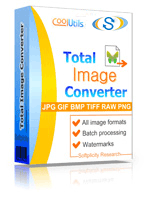1) Upload CIT file to convert
Drop files here, or Click to select
2) Set converting CIT to JPG options
3) Get converted file

 Total Image Converter
Total Image Converter
 JPEG, TIFF, PSD, PNG, etc.
JPEG, TIFF, PSD, PNG, etc. Rotate Images
Rotate Images Resize Images
Resize Images RAW photos
RAW photos Watermarks
Watermarks Clear interface
Clear interface Command line
Command line💾 Upload Your File: Go to the site, click on «Upload File,» and select your CIT file.
✍️ Set Conversion Options: Choose JPG as the output format and adjust any additional options if needed.
Convert and Download: Click 👉«Download Converted File»👈 to get your JPG file.




| File extension | .CIT |
| Category | File |
| Description | The CIT image format, also known as the CalTech image format, is a binary file format used for storing monochrome or color images. It was developed by the California Institute of Technology and has a maximum file size of 4 gigabytes. CIT files contain image data in a raw format, which means they do not include any header or metadata information. Instead, the image data is stored as a continuous stream of bytes, with each pixel represented by a single byte for monochrome images or three bytes (red, green, and blue) for color images. The CIT format uses a little-endian byte order, which means that the least significant byte is stored first. This is important to consider when reading or writing CIT files on systems that use a different byte order. In addition to storing image data, the CIT format supports optional compression using a variant of the Lempel-Ziv-Welch (LZW) algorithm. This can help reduce the file size of CIT images, but can also increase the time required to read or write the file. Overall, the CIT format is a simple and efficient way to store image data, particularly for scientific and technical applications that require precise control over image data. |
| Associated programs | Total Image Converter |
| Developed by | Intergraph Corporation |
| MIME type | |
| Useful links | |
| Conversion type | CIT to JPG |
| File extension | .JPG, .JPEG, .JPE, .JFIF, .JFI |
| Category | Image File |
| Description | JPG is the file format for images made by digital cameras and spread throughout the world wide web. Saving in JPG format an image loses its quality, because of the size compression. But at the end you have a much smaller file easy to archive, send, and publish in the web. These are the cases when an image's size matters more than image's quality. Nonetheless, by using professional software you can select the compression degree and so affect the image's quality. |
| Associated programs | |
| Developed by | The JPEG Committee |
| MIME type | |
| Useful links | More detailed information on JPG files |
Imagine you've stumbled upon an old, dusty tome in a forgotten library, brimming with arcane knowledge and encrypted sketches. That's what a CIT file feels like in the digital world—a format rooted in specialized applications, like the Intergraph suite for mapping and geospatial analyses. Now, what if this tome could be translated into the language of the masses? Enter JPG, the vernacular of digital imagery. Converting CIT to JPG is like revealing the secrets of an ancient civilization to the modern world.
CIT files are the hieroglyphics of the digital image world. Employed mainly in geospatial and engineering contexts, these files can contain valuable imagery but require the 'Rosetta Stone' of specialized software to unlock.
On the flip side, JPG is the 'English' of image formats—a universal lingua franca. It may not hold the esoteric power of a CIT file, but its versatility and wide acceptance make it the go-to choice for everyday image interactions.
Online conversion tools act as the archivists and translators in this story. They take the cryptic scrolls of CIT and transmute them into the easily shareable and accessible annals of JPG. It's a modern-day tale of digital alchemy.
The conversion makes the specialized and often inaccessible imagery in CIT files open to a wider audience. It transforms them from esoteric puzzles into shareable memories or usable data.
Turning a CIT file into a JPG is like taking a journey from the esoteric to the exoteric. It's a celebration of how the obscure can be made accessible, how the specialized can be democratized. This process is not just a conversion—it's an enlightening transformation.